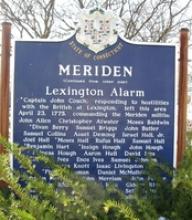“Dixie” and the “Battle Hymn of the Republic": Civil War song poems in the American repertoire

During the Civil War, both north and south used the song-poem to advance a nostalgia for their regions in order to create a willingness to fight. As evidenced by “Dixie” and “Battle Hymn of the Republic,” the true specificities and historical contexts rarely mattered, but instead interacted in a conversation with feelings about older tunes to advance new views on abolitionism. The poets or those who “claimed” these two song-poems created often false contexts for the song-poems in order to advance their causes.



